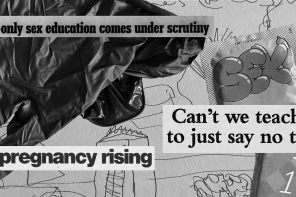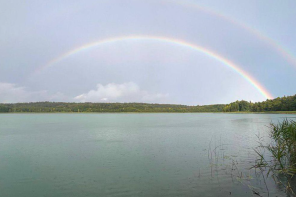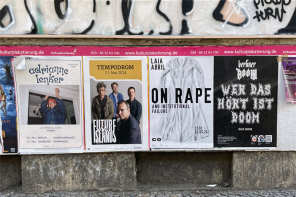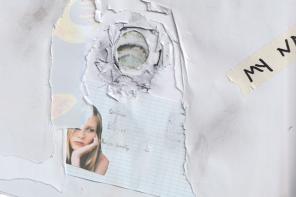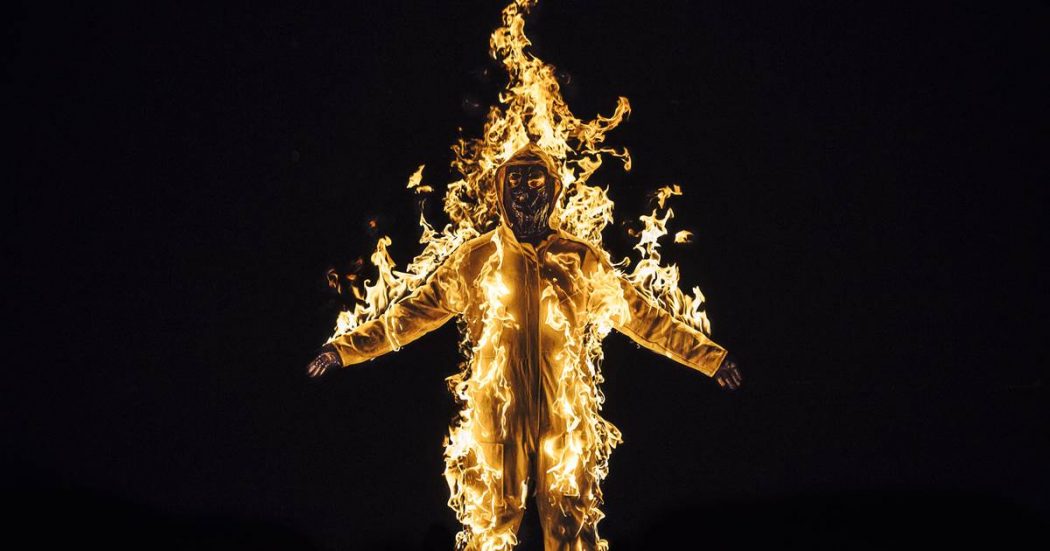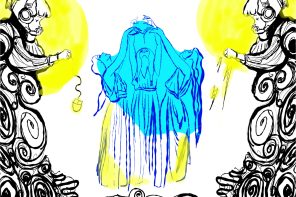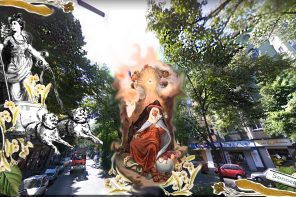Audio transcription:
Is it legally possible to get fined in hindsight for having attended a party during the Covid lockdown? If so, the following story is fiction, set in August 2020. A potential superspreader event – except no one got sick. The problem is not that the party happened. The problem is that the happening could only occur because the presence of those who would have prevented it from happening were not there to begin with.
The story is set in a holiday park in The Netherlands, similar to the one my family used to visit on Easter weekends. During one of these weekends, I started a campfire in the woods. My cousin joined. We smoked secret camels. When the police pulled up, we quickly threw the cigarettes into the fire. In front of our whole family, they calculated the financial waste we had created: police officers get paid extra on holiday weekends and their car consumed expensive gas – imagine the cost of a fire truck having to come all this way! The final sum was stated and rounded off with a smile; they just wanted to scare us. As a white kid, all the underage illegal stuff I did was framed as mere mischief. The officers didn’t talk about the damage we could have caused to the forest. In Animacies, Mel Y. Chen writes about an oil spill in the sea, “any threat to the “environment” was to the aesthetic preservation of the shore, and any threat to “humans” was only economic.” (226)
In such a holiday park, set in a fictional story, we held our party. A famous artist stood in the middle of a group of students. He had joined that day for an artist talk. A bag of happiness had been passed around indiscriminately – remember: those who didn’t have access, already weren’t here – and the famous artist had his share. While everyone was dancing, mingling, humping, soaking each other’s bodies, passing sweat, sharing ice cubes with twisting tongues, he stood with his arms raised, his hands pressed up against the ceiling. Hours passed; he wouldn’t let go. He looked like a stressed, stretched Atlas. Every now and then, someone would ask if he wanted to dance – or if he would at least move away from the middle of the dance floor. He didn’t move, seemingly convinced that he was carrying the world. Considering his relative fame, this lack of differentiation is easy to ridicule. Look at the delusional effects of power and status! Calling a man ‘delusional,’ however, has never reduced his power. Only ‘hysterical’ and ‘witch’ have murderous effects.
And what really is the difference between a holiday home’s ceiling and the globe? In Animacies, Chen describes lying on the couch after their dis/abled body shut down from an overload of supposed normalcy outside in public – a whiff of deodorant or perfume, a trail of cigarette smoke. Chen is resting on the couch when their lover comes home. Later on, Chen recalls being held by their partner’s human arms. But she tells Chen that no, you’ve only been cradled by the couch. Chen has mistaken the couch for their partner and, in the usual hierarchical distinction between subject and object, this is considered offensive. ‘Have I performed the inexcusable: Have I treated my girlfriend like a couch? Or have I treated my couch like her, which fares only slightly better in the moral equations?’ (202) But this ontological blurriness, Chen offers, could also inspire us to experience the animacy, the lively qualities of the couch.
I’ve been trying to think about an experience with sexual abuse from the perspective of fire. That’s not just because of the smell of smoke – literally present in his adult breath; figuratively here ‘cause could someone please have paid attention to the warning signals? –but also because I cannot distinguish my roar from the burn. The roar is deep, rumbling, and there are no memories from before. So yes, I always felt this belonged to me, that this wrongdoing by another suited me. Not because I deserved it in the sense of being a bad kid, but because I felt I could carry it. Not bad: bad ass. As if taking one for the team reduces the overall number of assaults. Not that the fact that I rationally know that violence has been done to me calms the heat. It doesn’t make it easier to separate what feels like internal fuel from an external flame. This is why I think about fire. It isn’t to reduce the offender’s responsibility but to say that in me, all are here: the pre-burned, the burned, the burn, the cool.
In Animacies, Chen writes about toxicity. The idea(l) of immunity exists in opposition to toxicity. The protection against toxicity, however well-meant, often plays out as an idealization of exclusion and isolation. We, as humans, forget that we too are often toxic. We cannot really differentiate between the body that is harmed and the harming body. And how do we differentiate between the toxicity we refuse loudly while accepting daily toxicity in plastics, air, water, food? We fear toxins because we perceive them as potential damage and negative change. But if we hope to repel this change and damage, what or who are we once we have been affected? If I’m changed by a toxin, how am I still separable from it?
Fire can be warm, fire can be cozy, fire is energy. Still, fire is generally approached with suspicion, argue Kathryn Yusoff and Nigel Clark in their article “Queer Fire: Ecology, Combustion and Pyrosexual Desire.” Fire is seen as a threat, burning the planet, the forests. There is no rewind. Clark and Yusoff address the fear of irrevocable loss and how this relates to a deep-seated reproductive attitude. Ecological worry and climate justice narratives often draw from a rejection of loss, obsessed with sustaining life. Fire, they argue, confronts us with a non-productive force: it doesn’t create. They playfully argue that the fear of fire relates to the repression of queer desire. Sexuality is usually visualized to serve evolution, and queer sex breaks this lineage. “Sex for its own sake, sex for the pleasure of it—just like any offloading of economic goods that manages to escape the circuit of reinvestment—is pure discharge, non-productive expenditure, a waste of energy.” (5) Fire has the capacity to waste. This, in capitalist society, is way worse than destruction, which is often employed to enforce profit. Waste just means missed opportunities and the discharge of potential profit.
Of course, Clark and Yusoff are talking about consensual sex. Still, I’m struck by this appreciation of waste, the validation of waste. My narration of an experience with sexual abuse through fire might feel euphemistic. I do not propose to take lightly the effects of violence, nor to let patriarchal, racist, sexist, ableist violence off the hook. But in my political desire for restorative justice, I’m drawn to the idea that I do not need to separate between harm done to me, and me.
The pre-burned, the burned, the burn, the cool. In the middle of the dance floor stands a famous artist pressing against the ceiling. Instead of trying to make him move, we might realize that he incorrectly designated where ‘the middle’ is.
Words by Simon(e) van Saarloos
Header Image from Inextinguishable Fire (2007-2015) by Cassils
Simon(e) van Saarloos is a writer, philosopher and artist. They published several books, among which Playing Monogamy. Her most recent book in Dutch, Herdenken herdacht, is a non-fiction work about queer forgetfulness, whiteness and embodied commemoration. Together with Kübra Uzun (A Trans History Sung, Volksbühne Berlin), she recently created an audio installation work called Cruising Gezi Park (Amsterdam Museum). In 2021, they’ll be queer bodybuilding, curating an exhibition themed “Abundance” and writing a manifesto against ageism.

